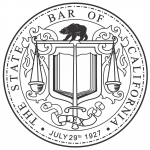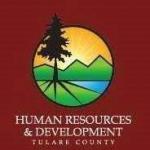Court Administrator Jobs: A Day in the Life

Introduction

What exactly does a court administrator do? From the federal circuit (Washington D.C.) down, what skills and qualities are necessary to excel in this demanding role? If you've ever considered a career in court administration, you might have found yourself pondering these questions.
We'll take you on a journey through a typical day in the life of a court administrator at a filled superior court.
From the early morning hours to the end of a busy day, we'll unveil the secrets of what it takes to keep a court running efficiently and effectively.
Morning Routine: Setting the Stage for Success
The success of a court administrator's day hinges on a well-structured morning routine. Long before the courthouse doors open to the public, these professionals are already hard at work, laying the groundwork for a productive and efficient day.
One of the first tasks court administrators tackle in the morning is prioritizing their responsibilities for the day ahead. They review their calendars, assessing which matters require immediate attention and which can be addressed later in the day. This strategic planning ensures that no crucial tasks slip through the cracks and that the court operates smoothly.
Court administrators also take the time to review the day's court schedule. They examine the docket, familiarizing themselves with the cases set to be heard, the parties involved, and any special requirements or arrangements that need to be made. By having a clear understanding of the day's proceedings, court administrators can anticipate potential challenges and proactively address them.
A critical aspect of a court administrator's morning routine is ensuring that the courtrooms are ready for the day's proceedings. This involves coordinating with custodial staff to guarantee that the rooms are clean, well-maintained, and properly equipped with necessary supplies and technology.
Court administrators may also use this time to test audio-visual equipment, ensuring that microphones, screens, and recording devices are functioning properly. They understand that even minor technical glitches can disrupt court proceedings, so they take proactive steps to minimize the risk of such issues.
Effective communication is the lifeblood of a well-functioning court, and court administrators play a vital role in facilitating this communication in a filled administrative office. During their morning routine, they often brief and coordinate with various court staff members, including clerks, bailiffs, and administrative personnel.
These morning meetings provide an opportunity to discuss the day's schedule, assign tasks, and address any concerns or questions staff members may have. By fostering open lines of communication and ensuring that everyone is on the same page, court administrators set the stage for a collaborative and efficient work environment.
Despite their best efforts to plan and prepare, court administrators know that unexpected issues can arise at any moment. Part of their morning routine involves being ready to handle urgent matters and last-minute changes to the court schedule.
Whether it's a sudden request for a hearing, a change in the availability of a key witness, or an emergency security concern, court administrators must be able to think on their feet and adapt quickly. They use their problem-solving skills and knowledge of court procedures to navigate these challenges and keep the court running smoothly.
Overseeing Staff and Ensuring Smooth Operations
In the fast-paced world of court administration, the ability to effectively oversee staff and ensure smooth operations is a critical skill. Court administrators are not only responsible for their own tasks but also for managing and leading a team of court employees. The success of the court relies heavily on the efficiency and productivity of its staff, making the role of the court administrator as a supervisor and manager paramount.
One of the key aspects of overseeing staff is building a strong and cohesive team. Court administrators must foster an environment of collaboration, open communication, and mutual respect among staff members. They do this by regularly engaging with their team, providing clear guidance and expectations, and encouraging feedback and input from all levels of personnel.
Effective court administrators also recognize the importance of staff development and training. They invest time and resources in providing their team with opportunities to enhance their skills, stay updated on the latest legal developments, and grow professionally. By cultivating a skilled and knowledgeable staff, court administrators ensure that the court is well-equipped to handle the complex challenges it faces.
Another crucial aspect of overseeing staff is the ability to delegate tasks effectively. Court administrators must have a keen understanding of the strengths and capabilities of each team member, allowing them to assign responsibilities in a way that maximizes efficiency and productivity.
However, delegation does not mean a hands-off approach. Effective court administrators regularly monitor the performance of their staff, providing guidance and support as needed. They establish clear performance metrics and conduct regular evaluations to ensure that everyone is meeting expectations and contributing to the smooth operation of the court.
Even with the most well-trained and dedicated staff, challenges and conflicts can arise. Court administrators must be prepared to address these issues promptly and professionally. They need to have strong problem-solving skills and the ability to remain calm under pressure.
When conflicts arise among staff members, court administrators must act as mediators, facilitating open and honest communication to find a resolution. They also need to be proactive in identifying potential challenges before they escalate, taking steps to mitigate risks and ensure that the court's operations remain uninterrupted.
Perhaps one of the most important aspects of overseeing staff is leading by example. Court administrators set the tone for the entire court staff, and their behavior and work ethic have a significant impact on the team's morale and performance.
Effective court administrators demonstrate the highest levels of professionalism, integrity, and dedication to their work. They are reliable, approachable, and always willing to go the extra mile to support their staff and ensure the smooth operation of the court.
Staying Updated with Legal Developments
In the ever-evolving landscape of the legal system, court administrators face the constant challenge of staying up-to-date with the latest legal developments. From changes in legislation and case law to the emergence of new legal technologies, court administrators must remain informed and adaptable to effectively support the work of the court. This ongoing education and awareness are critical to ensuring that the court operates in compliance with the law and that justice is administered fairly and efficiently.
One of the primary ways court administrators stay updated with legal developments is through continuing education. Many states and professional organizations require court administrators to complete a certain number of continuing education credits each year to maintain their credentials and stay abreast of changes in the field.
These educational opportunities can take many forms, including seminars, workshops, conferences, and online courses. They cover a wide range of topics, from updates on specific areas of law to best practices in court administration and management. By actively participating in these learning opportunities, court administrators expand their knowledge base and gain valuable insights that they can apply in their daily work.

Another key strategy for staying informed about legal developments is collaborating closely with legal professionals, including judges, attorneys, and law clerks. These individuals are often at the forefront of legal changes and can provide valuable perspectives on how these developments may impact court operations.
Court administrators should establish open lines of communication with these legal professionals, regularly seeking their input and guidance. This collaborative approach not only helps court administrators stay informed but also fosters a sense of teamwork and shared purpose among all those working in the court system.

In addition to formal educational opportunities and collaborations with legal professionals, court administrators can also tap into the wealth of knowledge and resources available through professional networks and associations.
Organizations such as the National Association for Court Management (NACM) and the International Association for Court Administration (IACA) provide a platform for court administrators to connect with peers, share best practices, and access valuable resources and publications. These networks also often host conferences and webinars that focus on emerging trends and challenges in court administration.
Court administrators should also stay engaged with local and state bar associations, as these organizations frequently provide updates on legal developments that are specific to their jurisdiction.

In today's digital age, court administrators have access to a wide array of online resources and legal research tools that can help them stay informed about legal developments. From legal databases and case law repositories to online legal news outlets and blogs, these resources provide a wealth of information at the click of a button.
Court administrators should become proficient in using these tools and incorporate them into their daily routine. By setting aside dedicated time each day to review legal news and conduct targeted research, court administrators can ensure that they are always up-to-date on the latest developments that may impact their work.

Ensuring Compliance and Fair Administration of Justice
At the heart of a court administrator's role lies a profound responsibility: ensuring that the court operates in compliance with all applicable laws, regulations, and ethical standards, and that justice is administered fairly and impartially. This commitment to compliance and fairness is the bedrock upon which the legitimacy and effectiveness of the judicial system rest.
To effectively ensure compliance, court administrators must have a deep understanding of the legal procedures and requirements that govern court operations. This knowledge extends beyond a superficial familiarity with the law; it requires a nuanced grasp of how legal principles apply in practice and how they shape every aspect of the court's work.
Court administrators must be well-versed in the rules of civil and criminal procedure, the laws governing evidence and discovery, and the ethical canons that guide the behavior of judges, attorneys, and court staff. They must also stay attuned to changes in these laws and procedures, adapting court operations as necessary to maintain compliance.
Ensuring compliance is not just about understanding the law; it's also about translating that understanding into actionable policies and procedures that guide the day-to-day operations of the court. Court administrators play a critical role in developing, implementing, and enforcing these policies.
This involves working closely with judges, attorneys, and other stakeholders to craft policies that are legally sound, practically feasible, and responsive to the needs of the court and the community it serves. Once these policies are in place, court administrators must ensure that they are consistently followed and that any deviations are promptly addressed and corrected.
Compliance is an ongoing process, not a one-time achievement. Court administrators must continuously monitor court operations to identify potential issues or areas of non-compliance. This requires a keen eye for detail, a proactive approach to problem-solving, and a willingness to confront difficult issues head-on.
When compliance issues do arise, court administrators must act swiftly and decisively to address them. This may involve conducting investigations, implementing corrective actions, and working with other court leaders to develop long-term solutions that prevent similar issues from recurring in the future.
Beyond the technical aspects of compliance, court administrators also play a vital role in promoting a culture of ethics and integrity within the court. They set the tone for the entire court staff, modeling the highest standards of professionalism, impartiality, and respect for the rule of law.
Court administrators must foster an environment in which all court personnel feel empowered to raise concerns about potential ethical violations or instances of non-compliance. They must also provide regular training and guidance to help court staff navigate the complex ethical challenges that can arise in the course of their work.
Ultimately, the purpose of compliance is to ensure that justice is administered fairly and impartially, and that all individuals have equal access to the court system. Court administrators must be vigilant in identifying and addressing any barriers that may prevent certain individuals or groups from fully participating in the judicial process.
This may involve implementing policies and procedures that accommodate the needs of litigants with disabilities, ensuring that language interpretation services are readily available, and working to eliminate any biases or disparities in how cases are handled and decided.
Conclusion
Throughout this in-depth exploration of a day in the life of a court administrator, we've unveiled the multifaceted responsibilities and challenges that define this crucial role in the judicial system. From the early morning hours spent setting the stage for a successful day to the ongoing efforts to ensure compliance and fairness, court administrators are the unsung heroes who keep the wheels of justice turning smoothly.

Court administrators must be deeply committed to the principles of justice, fairness, and the rule of law.
They must be unwavering in their dedication to ensuring that the court operates in compliance with all applicable laws and that every individual who comes before the court is treated with equal dignity and respect.
With locations ranging from the fourth appellate district in California to district court in Massachusetts, every job posting has its perfect applicant - and you could be that. If you possess the requisite skills and qualities, and if you feel a calling to serve your community and make a meaningful difference in the administration of justice, then a career in the judicial branch may be the right fit for you.















































